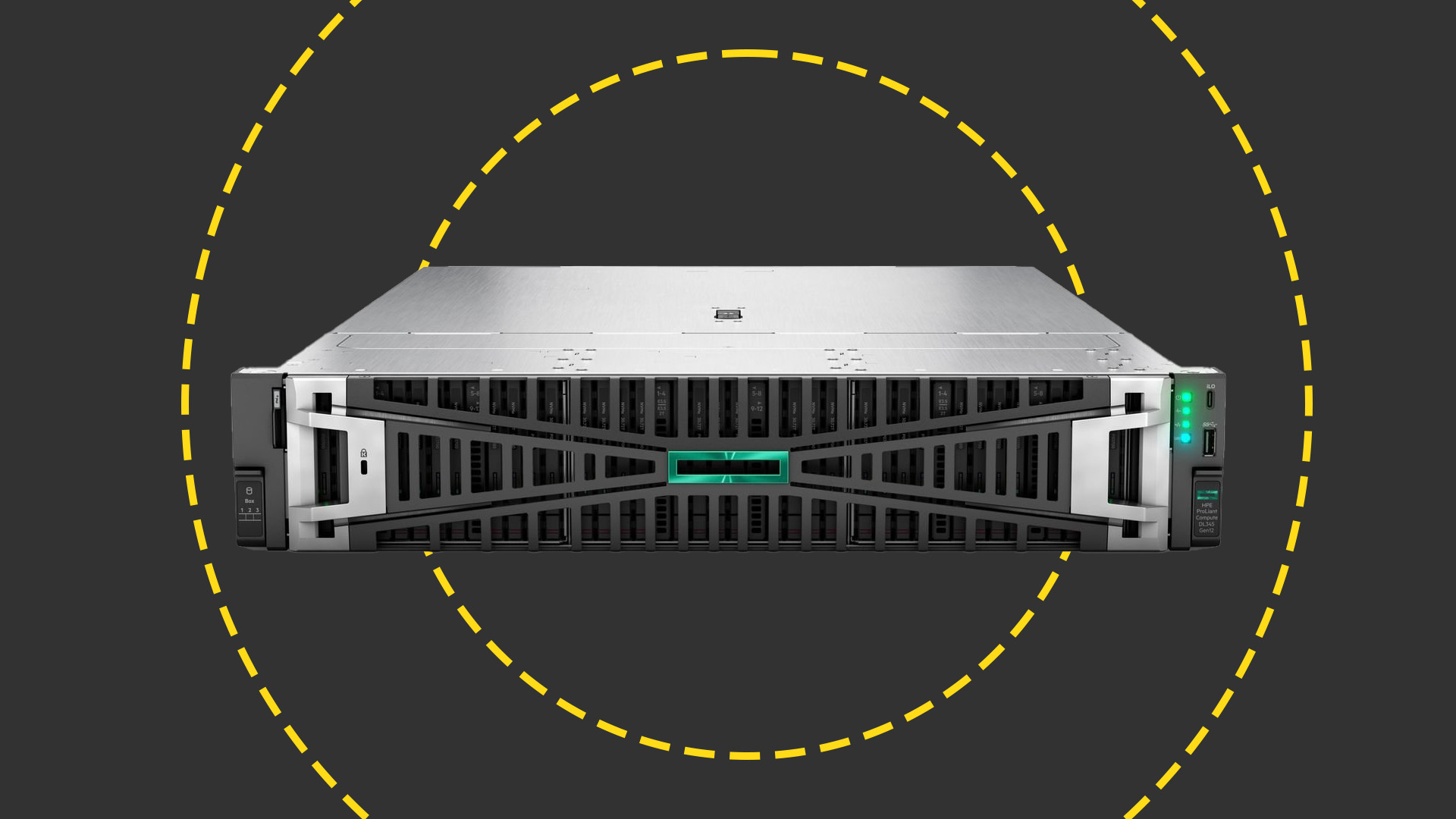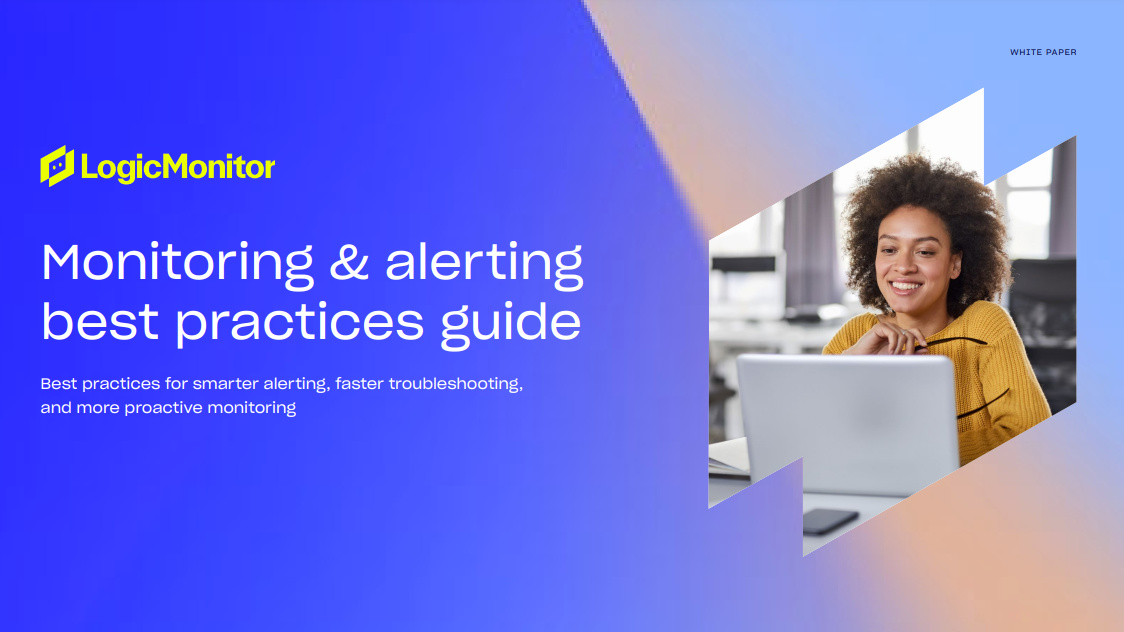What is storage Quality of Service and why is it important to businesses?
Quality of service isn't just a feature you can simply add to storage


Sign up today and you will receive a free copy of our Future Focus 2025 report - the leading guidance on AI, cybersecurity and other IT challenges as per 700+ senior executives
You are now subscribed
Your newsletter sign-up was successful
Businesses today are tasked with working out how to build a flexible, scalable platform that can support multiple workloads while improving operational efficiency. Until now, IT professionals have spent the bulk of their time tuning, tweaking, planning and troubleshooting storage performance.
But managing and troubleshooting storage performance is a labour-intensive process which takes up valuable time from delivering consistent performance.
Storage systems with native Quality of Service (QoS) capabilities have become the key transitional element for companies making the shift to a Next Generation Data Center that is home to applications and workloads that run smoothly and efficiently, rather than lagging and freezing.
So what is Quality of Service, and why is it so important for businesses to understand how to implement it?
Delivering consistent performance
QoS is a critical enabling technology for enterprise and service providers that want to deliver consistent primary storage performance. When multiple workloads share a limited resource, QoS helps provide control over how that resource is shared and prevents the noisiest' application from disrupting the performance of all the other applications in the same system.
Without storage QoS, active data will use more storage performance resources, which can starve other storage resources. Storage architecture alone cannot guarantee performance as legacy storage systems are simply not designed to handle the demands of multi-application cloud environments.
"Quality of service should not be regarded as a feature than can simply be added to a storage product," explained Simon Robinson of 451 Research. "QoS functionality that is bolted on...tends to leave conditions in which performance is unpredictable and remains a non-starter for business-critical applications.
Sign up today and you will receive a free copy of our Future Focus 2025 report - the leading guidance on AI, cybersecurity and other IT challenges as per 700+ senior executives
"Complete storage QoS requires consideration and implementation at the very core of storage product design."
Being able to guarantee performance in all situations - including failure scenarios, system overload, variable workloads and elastic demand - requires an architecture built from the ground up specifically to guarantee QoS.
Dealing with the noisy neighbour'
When multiple applications share the same storage infrastructure, all performance resources are freely available to all applications, all the time. Without a more precise resource allocation, one application or "noisy neighbour" can easily consume an unfair share of the resources.
This "first-come, first-served" allocation methodology has a huge negative effect on the performance of all the other applications on the system, and expectations on an application-by-application basis can be unpredictable.
QoS can be used to eliminate resource contention and variable application performance caused by "noisy neighbours", and provide predictable performance for each application.
Benefits to businesses
The primary advantage QoS offers to enterprises is the ability to consolidate multiple workloads, particularly in ones that have been previously isolated from one another in separate storage silos. Being able to deploy many applications onto a single platform with guaranteed QoS makes it easier to address all performance-related challenges within a single storage system.
This in turn reduces the cost of operations, the number of vendors in use and the quantity of tools needed to manage storage.
QoS also offers benefits for the future. By providing a scalable platform that can grow or shrink based on the collective needs of the business, enterprises can make more efficient use of capital, space and manpower.
The ultimate effect is to drive more efficiency, more integration, better performance and improved availability for the workloads while reducing the burden of management for the operations teams.
Esther is a freelance media analyst, podcaster, and one-third of Media Voices. She has previously worked as a content marketing lead for Dennis Publishing and the Media Briefing. She writes frequently on topics such as subscriptions and tech developments for industry sites such as Digital Content Next and What’s New in Publishing. She is co-founder of the Publisher Podcast Awards and Publisher Podcast Summit; the first conference and awards dedicated to celebrating and elevating publisher podcasts.
-
 HPE ProLiant Compute DL345 Gen12 review
HPE ProLiant Compute DL345 Gen12 reviewReviews The big EPYC core count and massive memory capacity make this affordable single-socket rack server ideal for a wide range of enterprise workloads
-
 What is a vector database?
What is a vector database?Explainer Storing data as mathematical values provides critical functionality for ML and AI
-
 Monitoring & alerting best practices guide
Monitoring & alerting best practices guideWhitepaper Best practices for smarter alerting, faster troubleshooting, and more proactive monitoring
-
 G2 Enterprise Monitoring Report
G2 Enterprise Monitoring ReportWhitepaper Designed to help businesses make the best IT Infrastructure Monitoring technology buying decision
-
 Best practices to deploy sustainable and resilient data centers at scale at the network edge
Best practices to deploy sustainable and resilient data centers at scale at the network edgeWhitepaper Data center owners and operators must elevate sustainability to a core value
-
 Basho open sources its database for the Internet of Things
Basho open sources its database for the Internet of ThingsNews NoSQL database gives developers better API support
-
 Kroll Ontrack signs storage consolidation deal with HDS
Kroll Ontrack signs storage consolidation deal with HDSNews Data recovery specialist turns to Hitachi Data Systems to virtualise its storage.
-
 Microsoft targets Big Data with SQL Server 2012
Microsoft targets Big Data with SQL Server 2012News SQL Server 2012 offers a leap forward in turning Big Data into business intelligence, says Microsoft.
-
 IBM IOD 2011: Firms must move from data insight to action
IBM IOD 2011: Firms must move from data insight to actionNews Making data work harder and for, rather than against, your business is key to success, IBM claims.
-
 What will the coalition do for business and technology?
What will the coalition do for business and technology?In-depth As Cameron and Clegg release their policy promises for the newly formed coalition Government, we boil down the 34 pages to let you know what will affect your business and the technology sector in the UK.
